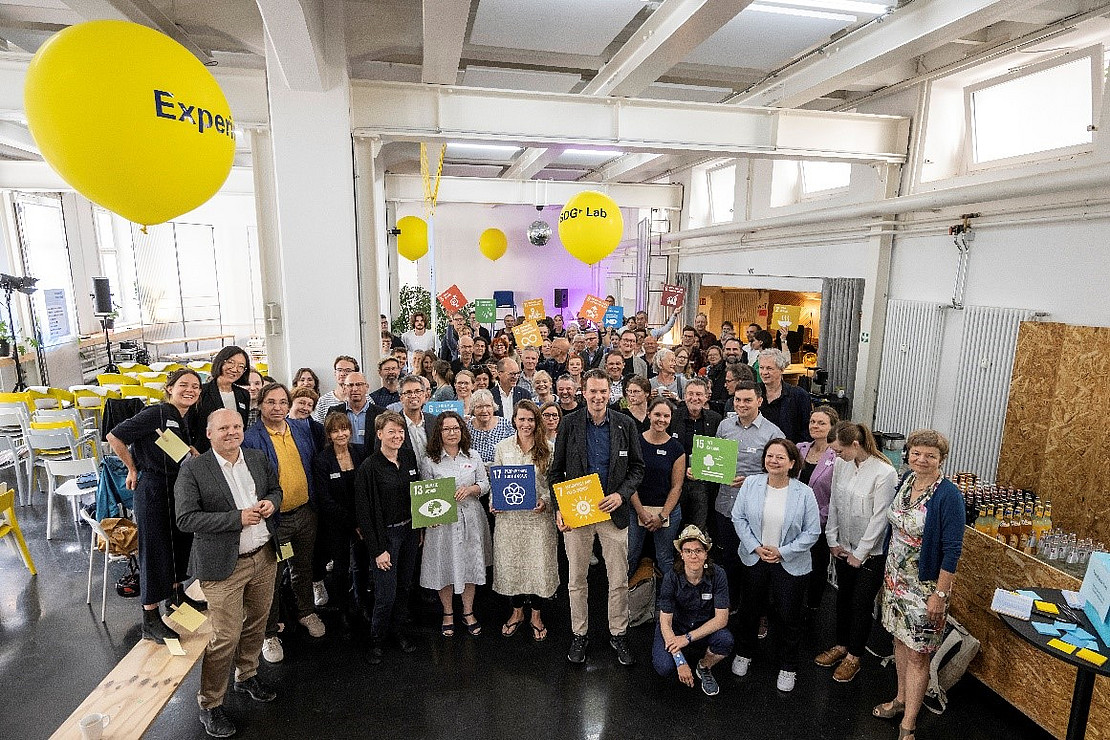This page contains automatically translated content.
Shaping a sustainable future together: Founding days of the SDG+ Lab
 Image: Sascha Mannel
Image: Sascha MannelUnder the motto "Transformation Open Source", stakeholders from the region should be involved right from the start of the project and act as ambassadors for the idea in the region, because: Complex social challenges cannot be answered by one institution alone.
On the very first day, medieval historian Prof. Dr. Annette Kehnel, under the title "Wir konnten auch anders" ("We could also do things differently"), encouraged the social-ecological transformation and, by looking back into the past, changed the perspective for shaping the future.
The designated mayor Sven Schöller welcomed the project. With his keynote speech, he focused on the SDG "Affordable and Clean Energy" on the one hand and also addressed the cohesion in the city of Kassel or social responsibility. The President of the University of Kassel, Prof. Dr. Ute Clement, emphasized the potential of the university to have an impact on the city and to participate in actively shaping the region. Motivated and inspired, the participants left the kick-off of the SDG+ Lab with the task of reporting on the project to other stakeholders and already existing initiatives.
With the SDG+ Lab, UniKasselTranfer develops a laboratory for sustainability issues as a platform for exchange between science and society and thus strengthens the sustainability focus of the University of Kassel. Along the 17 Sustainable Development Goals (SDGs) of the United Nations, practical solutions and innovations for the region of North Hesse are to be jointly designed. The project is being funded by the German federal and state governments over a period of five years as part of the "Innovative University" funding initiative.